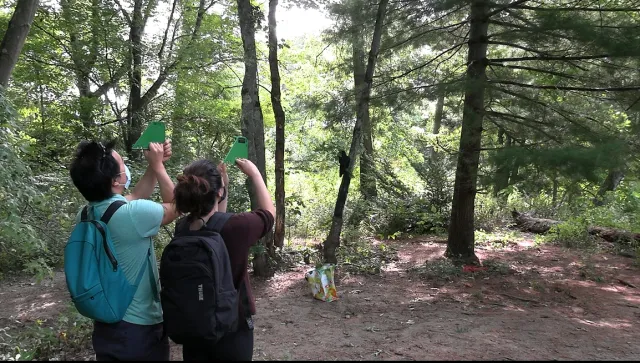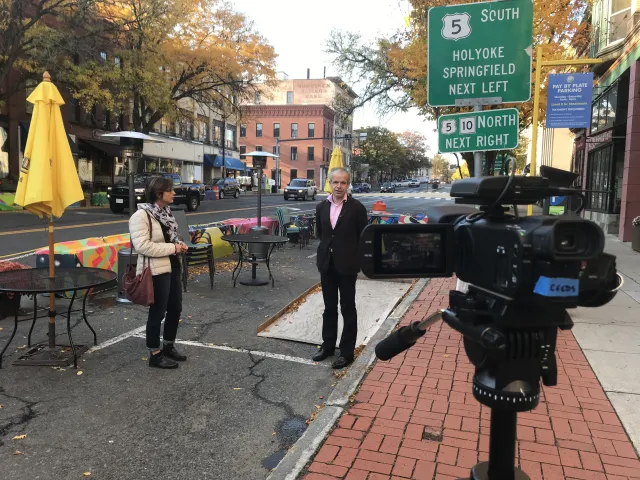Integrating Topics of the Environment, Ecological Design, and Sustainability Across All Disciplines
Published January 5, 2021
Each year, the Center for the Environment, Ecological Design and Sustainability (CEEDS) invites faculty and faculty teams in any discipline to submit proposals to develop a new course or modify an existing course that will support the Center’s goal of integrating knowledge across disciplines, in support of environmental decisions and action.
The curricular enhancement program supports new course development and modifications like the addition of lectures or discussion topics, the design of new assignments and projects, and the incorporation of field trips and hands-on experiences. Proposals that explore aspects of sustainable communities in policy and practice, that support the environmental concentration, that make use of the MacLeish Field Station or connect to the college’s current strategic initiatives are of particular interest. CEEDS provides grant recipients expertise and infrastructure in addition to supplemental course funds and a summer stipend in support of these endeavors.
During the 2020–21 academic year, CEEDS has thus far provided curricular enhancement grants to 12 faculty members in several disciplines across all three divisions—including East Asian studies, geosciences, art, and statistical and data sciences.
As Smith shifted to complete remote instruction for the fall semester, grant recipients faced the challenge of not only reconfiguring their overall courses, but also implementing their grant projects. Many of them successfully reimagined their courses and adapted their projects to fit the world of remote instruction.
For example, Assistant Professor of Statistical and Data Sciences Albert Kim teamed up with CEEDS and the Spatial Analysis Lab team to film a class activity on methods of measuring and collecting data on trees. Professor Kim invited student Olivia Handoko ’21, who was staying near campus, to join in as part of the video team.

This activity supports Professor Kim’s new experimental course on Ecological Forecasting for SDS 390 – Advanced Topics in Statistical and Data Sciences. The course incorporates concepts and tools to help students learn how to make ecology a more predictive science. It also helps students understand ecology and biology in the current context of unprecedented environmental challenges.
Another example is Senior Lecturer Maria Succi-Hempstead’s ITL 220 – Intermediate Italian course. Her grant supported the creation of a 3- to 4-week unit for students to develop the necessary vocabulary to learn about the most concerning environmental issues in Italy today, with a particular focus on the impact of the COVID-19 lockdown.
In October, she worked with CEEDS staff to film a dialogue about the Downtown Northampton Streets project with Frank Sleegers, associate professor of landscape architecture at the University of Massachusetts Amherst. Using all of the vocabulary students learned in the unit, the discussion focused on the implementation of more bike lanes and outdoor dining in Northampton, and contrasts urban planning in the United States with that of Europe.

CEEDS invites all interested faculty to apply to the program. The normal application cycle is in the early spring for the following academic year; proposals outside of that cycle are welcome and will be considered on a first-come, first-served basis and as funding allows. Interested faculty can visit the Resources for Faculty section of the CEEDS website for more information and to submit an application. You are also welcome to contact CEEDS Assistant Director Joanne Benkley (jbenkley@smith.edu) to discuss ideas and questions. The deadline to submit applications for 2021–22 courses is April 16, 2021.
— Amanda Chisolm ’21
CEEDS Communications Intern